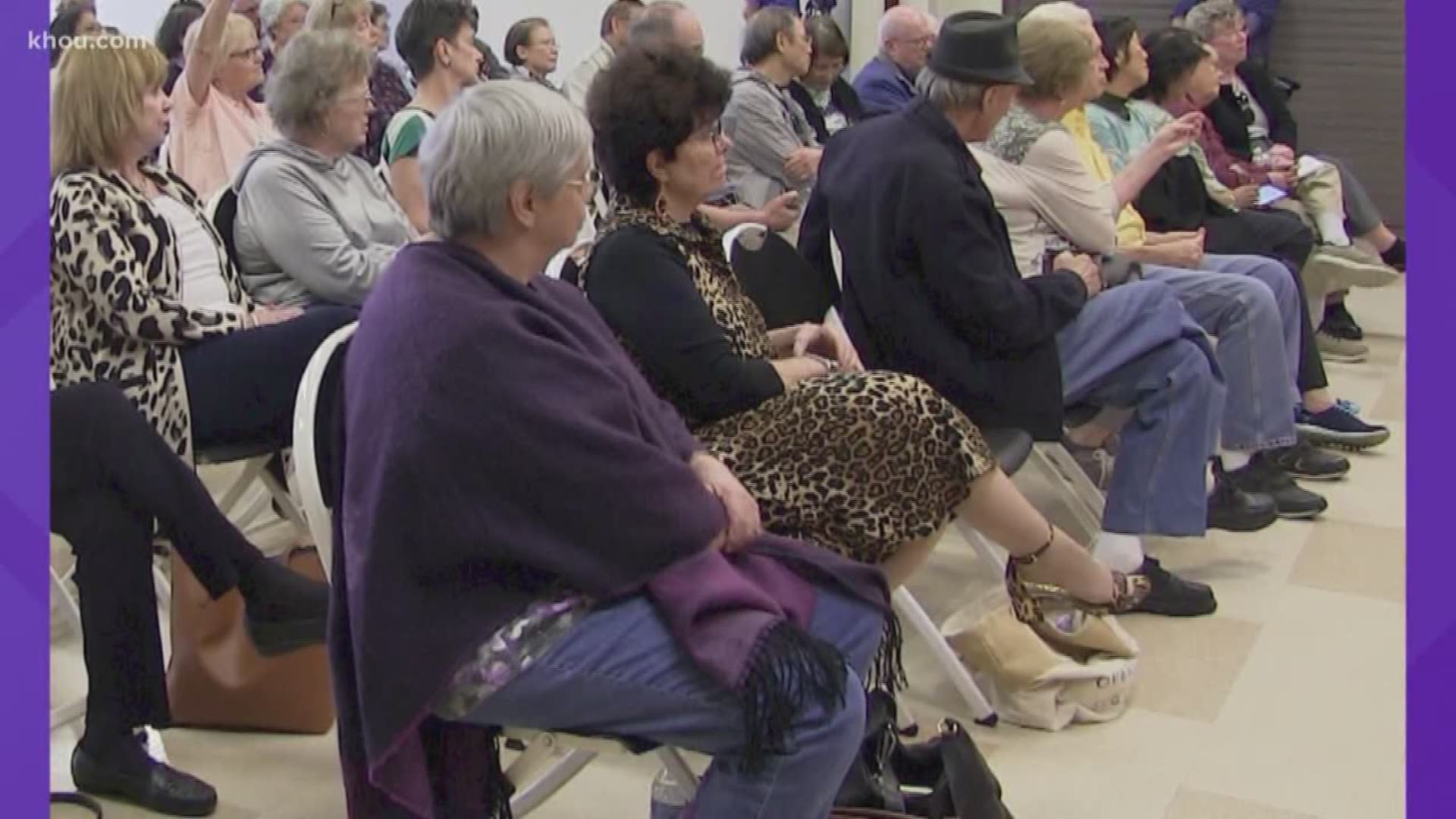HOUSTON — The T.E. Harmon Center in Sugar Land had scheduled the city's health director to speak to senior citizens long before a case of COVID-19 was confirmed within Fort Bend County.
But after the county's health department confirmed its first case earlier this week, Dr. Joe Anzaldua spent Thursday night fielding questions from a room full of concerned residents.
Here's what the state, the CDC and groups like AARP are sharing about how the novel strain of the coronavirus is impacting older Americans.
OLDER ADULTS AND COVID-19:
The Centers for Disease Control believes older adults and people with severe chronic medical conditions like heart, lung or kidney disease seem to be at a higher risk for more serious COVID-19 illness.
Early data suggests older people are twice as likely to have serious COVID-19 illness. This is because:
- As people age, their immune system changes, making it harder for their body to fight off infection.
- Many older adults have underlying health issues, making it harder to cope with and recover from illness.
IF YOU ARE AT A HIGHER RISK:
1) Stay home as much as possible.
2) Make sure you have several weeks of medication, supplies in case you have to stay home.
3) When out in public, stay away from people who are sick.
4) Limit close contact with people.
5) Wash your hands.
6) Avoid crowds.
COVID-19 AND LONG-TERM CARE FACILITIES:
The Texas Department of Health & Human Services released guidance on how all long-term care facilities, including nursing homes, should control and prevent disease infection.
Texas HHS is also encouraging facilities to post signs at the entrance instructing people not to visit if they have symptoms of any respiratory illness.
Long-term care facilities should also ensure sick leave policies allow employees to stay home when ill.
Monitor and isolate residents with fever or acute respiratory symptoms to their rooms.
Provide infection control training, require frequent hand-washing, and provide the right supplies for personal protective equipment.
WHAT ABOUT THE $8.3 BILLION TO FIGHT COVID-19?
The added funding allows Medicare to more effectively use telehealth, allowing older adults to access heath care without having to leave their homes.
Medicare inspectors are now focusing on the most serious health and safety threats like infectious diseases and abuse within facilities that accept federal medicare funding.
The shift in approach allows inspectors to focus on addressing the spread of COVID-19.

